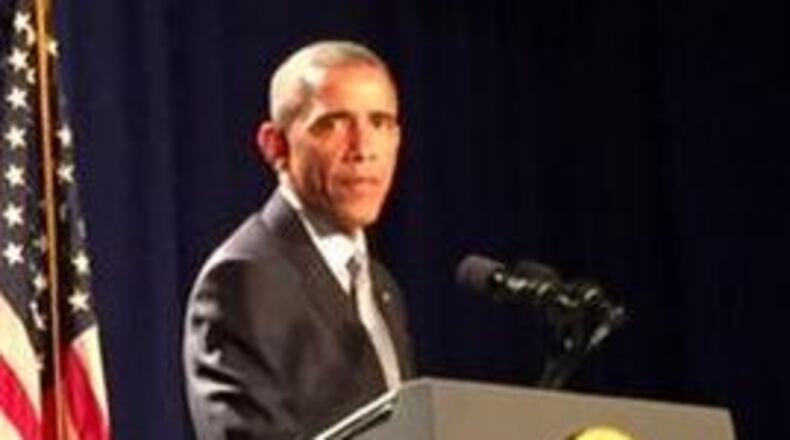The Obama Administration announced on Thursday that the President will propose a budget next week which increases discretionary spending by $74 billion, busting through spending caps put in place by Congress and the President back in 2011.
The White House defended the move to raise discretionary spending by 7 percent, arguing that with falling deficits, it was time to increase investments in plans to help the middle class; President Obama briefed House Democrats about the details at their party's retreat on Thursday night in Philadelphia.
"It's pretty rare when you have two visions - a vigorous debate, and then you test who's right, and the record shows that we were right," the President told fellow Democrats.
"Budgets are important because they’re a way that we can codify our values and our priorities," said White House spokesman Josh Earnest.
But on Capitol Hill, the word that the White House would seek extra spending - while also doing away with the sequester - landed with a big thud amongst Republicans.
"I don't know how we're going to reach a deal with the White House," said Sen. Jim Inhofe (R-OK), who wants more for defense spending - but not in exchange for higher revenues for Uncle Sam.
"I wouldn't want tax increases to do it," said Inhofe.
Details on Monday
The President's budget will be released on Monday; it will be only the second time during his administration that the budget has been sent to Capitol Hill on time, by early February.
The call for a 7 percent increase in discretionary spending means that instead of a budget of $1.016 trillion in Fiscal Year 2016, Mr. Obama would seek $1.090 trillion.
That 'discretionary budget' figure covers everything that the Congress deals with in its yearly budget work - but does not include entitlement programs like Medicare and Social Security, which are the main drivers of the increasing total budget for Uncle Sam.
About the Author
The Latest
Featured


